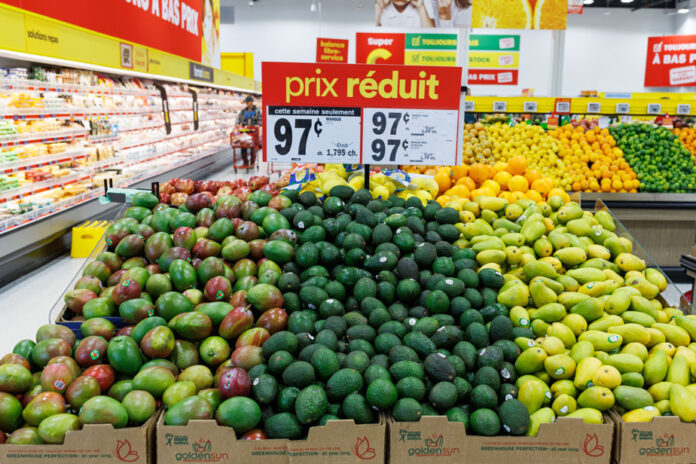The popularity of low-cost brands has allowed Metro to gain market share. In this context, the Quebec retailer has made no secret of its intention to convert some of its grocery stores to Super C in the future.
“Food inflation remains persistent, and our teams have done an excellent job of delivering value to our customers, which has translated into market share and volume growth, driven primarily by our food stores discount rate,” Metro President and CEO Eric La Flèche said Wednesday during a call with analysts to comment on results for the third quarter, ended July 1.
“Same food store sales were up 9.4% (1.1% in the third quarter of 2022), primarily due to higher sales at our discount stores as well as inflation. »
“There is clearly a movement in the market (towards discount retailers) and we want to seize this opportunity,” he said in response to questions from an analyst. We converted a few stores last year, we will probably convert more next year. We have the potential for conversions but we don’t intend to make it a large-scale program,” he said.
In the last two years, Metro has only converted two Metros to Super C. Impossible to know the forecast for the coming years. Mr. La Flèche seems to want to dissociate himself from the strategy adopted by Loblaw which brought 36 Provigo supermarkets into the hands of Maxi.
Mr. La Flèche also took the opportunity to defend the company following the filing of a class action lawsuit against Loblaw and Metro, accusing them of having illegally fixed the price of meat. According to the petition, the singled-out companies made “several billions of dollars” richer by “intentionally violating pricing laws.”
“We never participated in a price-fixing cartel,” he said. Allegations that the culture in the industry is such that this kind of practice is rampant are simply not true. »
In another case, that of bread, the Competition Bureau Canada is continuing its investigation “into price-fixing allegations against companies such as Metro, Sobeys, Walmart, Giant Tiger and Maple Leaf Foods”.
As for the MOI program, launched with great fanfare in the spring, its implementation cost $5.1 million. So far, he reportedly has some 2.2 million followers. According to Mr. La Flèche, new customers are joining every week. The new loyalty program is present in some 900 stores across the Metro, Jean Coutu, Brunet, Première Moisson and Super C brands.
For the third quarter ended July 1, the Quebec company saw an increase in revenues and profits. Metro recorded a 9.6% increase in turnover to 6.4 billion. Then the company posted an adjusted profit of 314.8 million, an increase of 10.9%. Adjusted diluted earnings per share were $1.35.
The company’s net profit, for its part, increased by 26.1% to 346.7 million. Metro considers that, exceptionally, the net profit does not reflect its activities since it includes an accounting item related to obtaining a capital loss deduction for the years 2012 and 2014. The tax authorities had previously refused the deduction that Metro company finally obtained.















